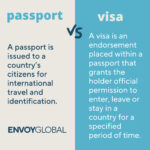Jordan, a country celebrated for its ancient wonders like Petra and Wadi Rum, and its welcoming culture, is a popular destination in the Middle East. However, a common question for prospective travelers is: Is Jordan Safe For Travel? Understanding the current safety landscape is crucial for planning a trip with peace of mind. This article provides an overview based on the latest travel advisories, helping you make informed decisions about your journey to Jordan.
Overall Safety Situation in Jordan
While Jordan is often considered a relatively stable country in a turbulent region, it’s essential to exercise increased caution due to ongoing regional tensions and the threat of terrorism. Terrorist groups continue to express intent to carry out attacks, and these could occur with little to no warning, targeting locations frequented by tourists, transportation hubs, markets, shopping malls, and government facilities.
It’s important to stay informed and vigilant during your travels. The security environment can be complex and change rapidly, making continuous monitoring of the situation advisable.
Areas to Avoid in Jordan (Level 4: Do Not Travel)
Certain areas within Jordan carry a significantly higher risk and are designated as “Do Not Travel” zones. These areas are primarily due to the heightened risk of terrorism and armed conflict:
Jordan-Syria Border and Iraq Border Area
Travel within 3.5 km of the Jordan-Syria border and east of the town of Ruwayshid towards the Iraq border is strictly advised against. This is due to the persistent threat of terrorism and armed conflict spilling over from the neighboring countries. Cross-border violence and potential terrorist attacks are significant concerns in this region.
Syrian Refugee Camps
Designated Syrian refugee camps within Jordan are also “Do Not Travel” zones. This restriction is primarily due to Government of Jordan regulations that limit entry into these camps. Unauthorized access is prohibited, and travel to these areas should be avoided.
Zarqa, Rusayfah, and the Baqa’a Neighborhood of Ayn Basha
The cities of Zarqa, Rusayfah, and the Baqa’a neighborhood of Ayn Basha are also designated as “Do Not Travel” areas. The elevated risk here is attributed to both terrorism and crime. Travel to these specific urban areas is discouraged due to these safety concerns.
Areas to Reconsider Travel (Level 3: Reconsider Travel)
Ma’an City and Ma’an Governorate
Travel to Ma’an City and certain areas within the Ma’an Governorate should be reconsidered. Specifically, this advisory includes all areas of Ma’an Governorate east of Highway 15 (“The Desert Highway”) and areas within two kilometers west of Highway 15. The recommendation to reconsider travel is based on risks associated with terrorism and crime in these locations.
Safety Tips for Traveling to Jordan
If you decide to travel to Jordan, despite the outlined risks, it’s crucial to take proactive safety measures. Here are essential tips to enhance your safety and awareness:
- Stay Informed: Continuously monitor local media for breaking events and adjust your travel plans based on any new information or developing situations.
- Avoid Protests and Demonstrations: Steer clear of any demonstrations or protests, as these can become unpredictable and potentially unsafe.
- Be Aware of Your Surroundings: Maintain a heightened sense of awareness of your surroundings at all times, especially in public places.
- Stay Alert in Tourist Locations: Exercise extra vigilance in locations frequented by Westerners, as these could be potential targets.
- Comprehensive Medical Insurance: Ensure you have comprehensive medical insurance that includes medical evacuation coverage in case of emergencies.
- STEP Enrollment: Enroll in the Smart Traveler Enrollment Program (STEP) to receive alerts and make it easier for the U.S. embassy to locate you in an emergency.
- Follow Travel Advisories: Stay updated by following the Department of State on Facebook and X/Twitter for the latest travel information and alerts.
- Review Security Reports: Consult the Country Security Report for Jordan for detailed security information.
- Check Travel Health Information: Visit the CDC page for the most current Travel Health Information related to your trip.
- Prepare a Contingency Plan: Develop a contingency plan for emergency situations and review the Traveler’s Checklist to ensure you are well-prepared.
Conclusion
So, is Jordan safe for travel? The answer is nuanced. While Jordan is generally stable and welcoming, it’s crucial to acknowledge the existing risks, particularly related to terrorism, and exercise increased caution. Certain areas should be avoided altogether, and for other areas, travelers should reconsider their plans. By staying informed, being vigilant, and adhering to safety guidelines, you can mitigate risks and have a safer travel experience in Jordan. Always prioritize your safety and remain adaptable to changing circumstances.

